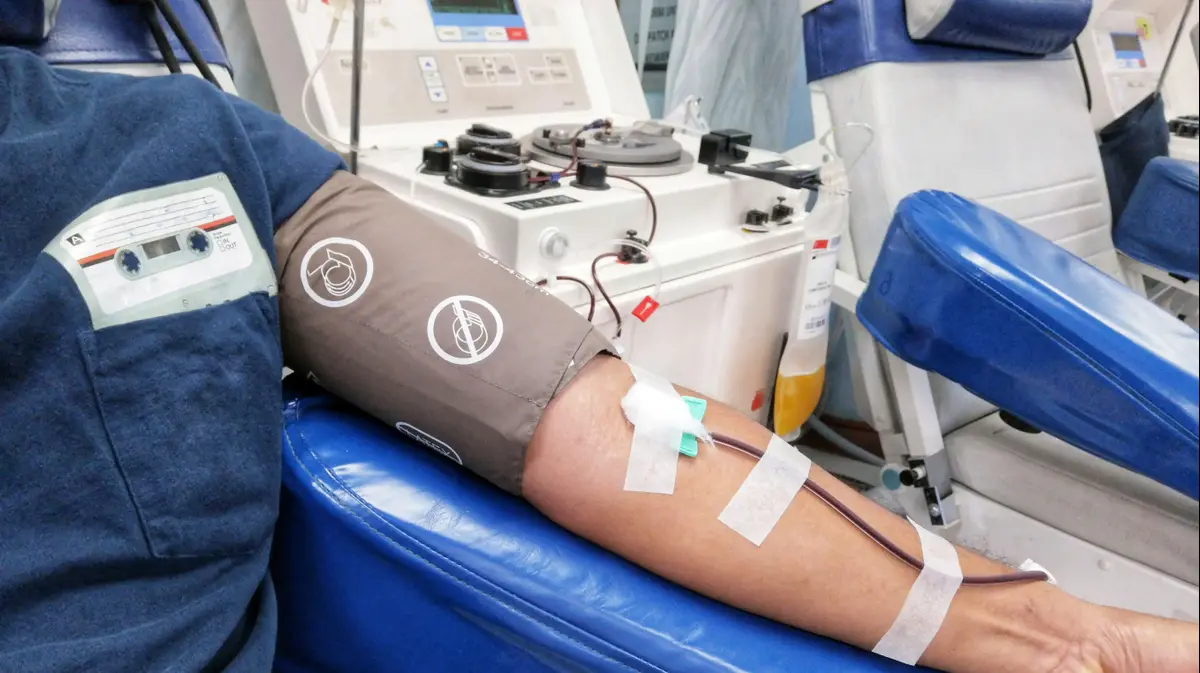Enlarge image
Blood donors urgently wanted (symbol image)
Photo: x-reflexnaja / Getty Images
In view of the declining blood donations, transfusion doctors believe that the supply of blood products in Germany is at risk in the medium term.
"There is a blatant shortage in the blood banks," said the director of the Institute for Clinical Hemostaseology and Transfusion Medicine at the Saarland University Hospital, Hermann Eichler, the German Press Agency.
The reason is demographic change: "The generation of baby boomers is now reaching retirement age and is gradually falling out of the donor pool." However, there were not enough young donors who could compensate for this, said Eichler.
“The blood supply situation is precarious.
Not just during the holiday season, not just because of Corona, but fundamentally precarious," said Eichler.
If you don't take countermeasures, it could be that medical standards can no longer be maintained in the future.
"Then we simply don't have the blood anymore."
A one-time donation is not enough
Doctors had already warned in the summer that blood reserves were running low.
As a result, there were numerous calls on social media, which encouraged donations.
But a one-off donation doesn't change the overall situation: "The fact that we have this demographic overlap, that you simply can't do it with calls anymore, that's new," said Eichler.
Countermeasures with short-term measures are no longer possible.
"We have to ensure that the proportion of people who donate regularly increases."
The German Society for Transfusion Medicine and Immunohaematology (DGTI) urgently calls on citizens who are eligible to donate blood.
In Germany, around 15,000 blood donations are needed every day after accidents, during operations, in intensive care units and in cancer therapy.
Daily needs can fluctuate, as the corona pandemic has shown, said DGTI former President Eichler.
At the beginning of the pandemic, consumption fell by around 30 percent because operations that could be planned were postponed.
After the corona restrictions were lifted, interventions were made up for and the need for blood increased again.
However, since many people are out and about in the summer, the number of blood donations has fallen.
Such seasonal fluctuations have also existed in the past.
It is difficult to say what the current situation is in the federal states.
"There is no nationwide level that you can call up," said the doctor.
It varies regionally.
The Saarland, for example, is "an area of blood shortage: For years we have not been able to cover the regional needs of the federal state with donations".
Even during Corona, self-sufficiency could not be managed.
Support came from Rhineland-Palatinate.
According to a study in Saarland, which according to Eichler has nationwide significance, a quarter of the donors - almost one percent of the population capable of donating - are responsible for almost half of the total blood donated.
“And that one percent of the eligible population between the ages of 18 and 65 is older, between 45 and 65 years old.
And now there is a risk of gradually falling out due to demographics.«
kry/dpa









